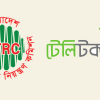No shortcut in audit standards

Bangladesh is witnessing a growing debate over who should be legally authorised to conduct audits. As someone qualified as both a chartered accountant (CA) and a cost and management accountant (CMA) from India, I value both professions. CMAs play vital roles in cost control, cost audits, decision support, internal audit, and performance reporting. However, audits require legal authority, structured audit training, and supervised audit experience that can only be provided by CAs in practice. Both professions offer complementary roles that do not overlap.
In Bangladesh, statutory audits are mandated by various laws such as the Companies (Amendment) Act 2020, the Income Tax Act 2023, NGO regulations, the Societies Registration Act, by-laws of trusts, clubs, and societies, as well as practices of banks and the RJSC. The right to conduct statutory audits rests exclusively with members of the Institute of Chartered Accountants of Bangladesh (ICAB) under these statutes and the Chartered Accountants Order 1973. By-laws and practices generally stipulate audit by a chartered accountant.
This reflects global practice, where one regulated body is entrusted with public audit responsibility to ensure consistency and quality. In India, only CAs can perform statutory audits. In the UK, members of CIMA cannot sign audit reports. In the US and Canada, where CAs and CMAs are now unified as certified professional accountants (CPA), only CPAs may audit.
ICAB's three-year articleship training, followed by two years' post-qualification experience to obtain a certificate of practice, aligns fully with the International Federation of Accountants (IFAC) International Education Standard 8. This standard specifically mandates audit training under an audit supervisor. The extensive accounting or costing experience of CMAs cannot substitute for the audit-specific practical training required to conduct audits.
The rigour of ICAB's framework stands alongside that of other regulated professions. Doctors must complete one year of supervised clinical internship, and lawyers must practise for two years before becoming eligible to appear before the High Court.
Proposals to allow bodies other than CAs to audit entities beyond companies cannot be justified, as they lack the legal mandate. Audits must be conducted in accordance with the International Standards on Auditing of the International Auditing and Assurance Standards Board and IFAC standards, standards that only practising CAs meet.
Some argue that poor audit quality in Bangladesh deters foreign direct investment (FDI) and enables money laundering. No major FDI assessment has flagged audit quality as a top concern. Incidents of audit failure, both locally and globally, are exceptions rather than the norm. Moreover, the primary responsibility for preventing money laundering lies with boards, internal controls, and regulators.
The occasional occurrence of poor audit quality does not justify expanding audit rights to professionals other than CAs, who typically lack the depth of training, practical exposure, and legal framework required to conduct audits. Simply increasing the number of audit providers without ensuring equivalent professional standards will not guarantee better audit quality; it may further compromise it.
That said, recent controversies involving the audits of high-profile companies during the previous regime highlight the urgent need to enhance both the quality and independence of the audit function under strong oversight.
What Bangladesh needs now is not a turf war but the strengthening of the Financial Reporting Council (FRC), in line with bodies like India's NFRA or the US PCAOB. ICAB and ICMAB can collaborate on improving audit quality, ESG reporting, digital finance, and public sector reform. In line with global best practice, ICAB already offers a pathway for qualified CMAs to become CAs, with exemptions and mandatory audit training.
Audit is not about professional parity; it is about the legal framework, professional competence, and protecting the public trust. Reforms must be grounded in law, international auditing standards, and global best practice, not lobbying or rhetoric.
The writer is the chairman of Unilever Consumer Care Limited.

 For all latest news, follow The Daily Star's Google News channel.
For all latest news, follow The Daily Star's Google News channel. 







Comments